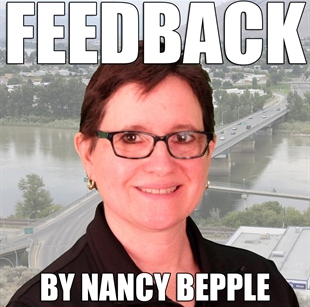
Image Credit: Compilation/Jennifer Stahn
August 14, 2015 - 7:28 AM
While the candidates for the upcoming federal election may want us all to believe the issues are all about national concerns, in reality many issues are rooted closer to home, at the municipal and local government level. Whoever gets elected October 19 to sit in parliament in Ottawa will have to work closely with local politicians to accomplish many of their campaign promises.
Take for instance affordable housing. Housing costs vary across the country, from astronomical to dirt cheap. No matter which, local government policy has a huge impact on the cost of housing. First, it is local governments who decide which land is zoned for single family, multi-family, mixed use, or commercial. To create affordable housing often requires a rezoning.
However, many times, neighbours come out in force to oppose higher density.
I have seen many neighbours oppose applications for higher density, in the form of a basement suite, smaller lot sizes, apartment or supported housing. As often as not, if there is a large opposition to a rezoning, the council may turn down the application. Affordable housing requires not only federal government support but also the will of local municipal councils to support housing options.
Therefore, whoever gets elected to the federal parliament needs to not only think about money for affordable housing, but how housing is built. Even if the federal government is funding affordable housing, it will be a local government who approves of the land use.
Another issue in this federal election is climate change. Reducing climate change includes reducing carbon emissions. The Environment Canada website states that 24 per cent of all greenhouse gas emissions in Canada are caused by transportation. Reducing the number of vehicles on the road would have a huge impact on greenhouse gas emissions.
Transit, bicycle infrastructure and pedestrian infrastructure are all services provided by local governments. If the federal government wants to reduce single passenger vehicle traffic, then funding more transit and other alternative methods of transportation makes sense. If so, the federal government will have to work in partnership with local governments to get more buses, bike paths and sidewalks.
Federal government candidates should be thinking of ways they can support local governments to take on new projects. One time grants help, but year-to-year funding for operations is equally important.
The other large sector for greenhouse gas emissions in Canada is the oil and gas sector, which accounts for a massive 25 per cent of all emissions. Opposition by many to the proposed pipeline expansions comes in part from an overarching opposition by many people to the petroleum industry and its environmental harm and contribution to greenhouse gas emissions. Some municipal councils such as Burnaby have come out strongly against pipeline expansions while on the other hand the City of Kamloops councils have been more neutral or possibly even supportive.
Across Canada, municipalities in the path of proposed pipelines are being vocal about the need for increased input into the review process for pipeline expansions and more accountability from the National Energy Board. Going forward, federal politicians crafting policy around pipeline expansion ignore local municipal governments at their peril.
Pipelines need support from start to finish. Kinder Morgan and other pipelines pass through towns and cities both in support and opposed to expansion. Federal politicians are wise to find out local politicians views sooner rather than later.
There are many other policies and programs which federal politicians propose which need local government support to succeed such as policing and increased funding for infrastructure.
Hopefully whoever gets elected in the October 19 federal election makes a trip to their local city hall as a first step to getting things done. Otherwise, it will be a lot harder for them to meet their election promises.
News from © iNFOnews, 2015